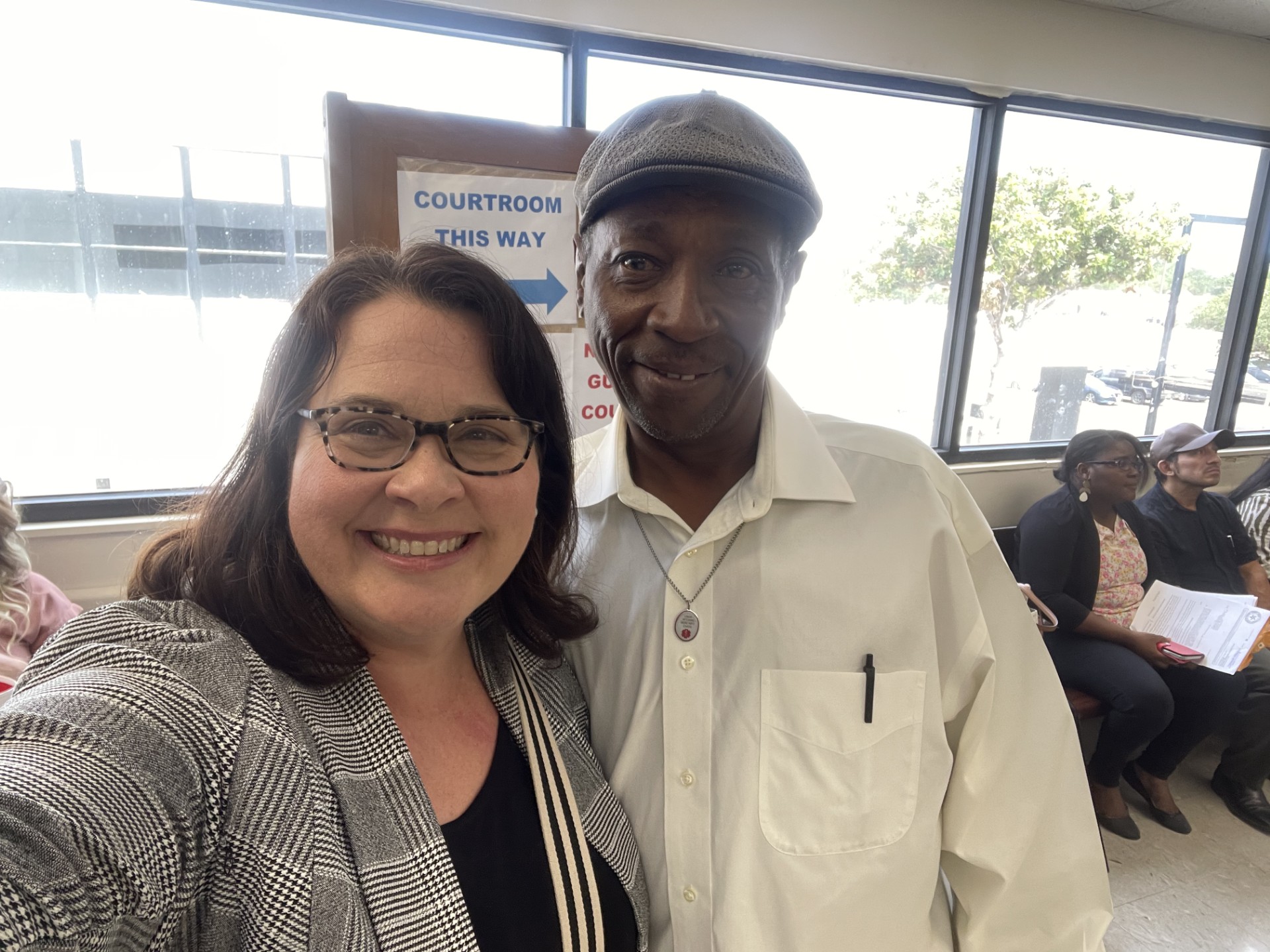April 15, 2025 by Aimee VonBokel
Lone Star Legal Aid’s Jonna Treble Protects Veteran from Unfair Eviction
When Landlords Won’t Accept Rent
Renters are legally obligated to pay rent. But what happens when a tenant tries to pay—and the landlord refuses to accept it? Unfortunately, that’s what happened to Mr. Kenneth Murray, a 66-year-old veteran, whose story highlights a disturbing housing trend that can leave vulnerable tenants at risk of losing their homes.
Mr. Murray is a U.S. military veteran and participant in the HUD-Veterans Affairs Supportive Housing (HUD-VASH) program—a joint effort between the U.S. Department of Housing and Urban Development and the Department of Veterans Affairs (VA). The program helps veterans experiencing or at risk of homelessness by providing rental assistance and supportive services. Like many seniors on a fixed income, Mr. Murray contributes a modest portion of the rent, and his HUD-VASH voucher covers the difference through the local public housing authority—in this case, the Houston Housing Authority (HHA).

LSLA attorney Jonna Treble with her client, Kenneth Murray
For a time, everything worked as it should. HHA deposited Mr. Murray’s rental assistance directly to his landlord each month, and Mr. Murray paid his portion either online or in person at the apartment’s leasing office.
But that changed when the property’s on-site management suddenly disappeared. The online rent portal stopped recognizing the payments being made through HHA, and Mr. Murray’s attempts to pay his share of the rent were rejected. Despite repeated notices saying he owed money, there was no one on-site to explain the charges, accept his payments, or clarify the status of his account. He continued saving his rent, fully intending to pay once the issue was resolved. But months passed—and eventually, he received a demand for nearly $6,000.
Knowing something wasn’t right, Mr. Murray visited the Legal Aid Help Desk hosted by Lone Star Legal Aid (LSLA) at the Michael E. DeBakey VA Medical Center in Houston. There, he met Nicole Ketchum, a paralegal with LSLA’s Military and Veterans Unit. Nicole connected Mr. Murray with Staff Attorney Jonna Treble, who began evaluating the situation.
Ms. Treble obtained Mr. Murray’s rent records and confirmed with HHA that voucher payments had indeed been made monthly. Despite this, the apartment complex claimed nonpayment and initiated eviction proceedings.
An eviction notice ordered Mr. Murray to appear in court. Like most eviction hearings, the trial would be fast-paced, with few tenants having legal representation. Fortunately, Mr. Murray wasn’t alone—Ms. Treble represented him in court. When they stood before the judge, she shared Mr. Murray’s story and the court noticed that there were over a dozen other tenants with similar complaints. The judge noted procedural errors in the eviction filings and dismissed Mr. Murray’s case.
While this was a legal victory, the damage had been done.
Although the court dismissed the case, tenant screening companies—used by landlords to assess rental applicants—often report only that an eviction lawsuit was filed, not the outcome. As a result, Mr. Murray’s name is now attached to an attempted eviction filing in public records, which may negatively affect his future housing prospects. This is true even though he never missed a payment, never broke a lease, and ultimately won his case in court.
To help minimize the impact, Ms. Treble provided Mr. Murray with a letter on LSLA letterhead explaining the facts of the case and the court’s decision. She encouraged him to share the letter with any prospective landlord to explain the situation.
With the help of our local community partner, BakerRipley, Mr. Murray relocated to a new home, thanks to swift coordination between LSLA, BakerRipley, and the VA, which provided a new voucher to support his move.
Lone Star Legal Aid (LSLA) is a 501(c)(3) nonprofit law firm focused on advocacy for low-income populations by providing free legal education, advice, and representation. LSLA serves millions of people at 125% of federal poverty guidelines, who live in 72 counties in the eastern and Gulf Coast regions of Texas, and 4 counties in Southwest Arkansas. To learn more about Lone Star Legal Aid, visit our website at www.LoneStarLegal.org.
Media contact: media@lonestarlegal.org
